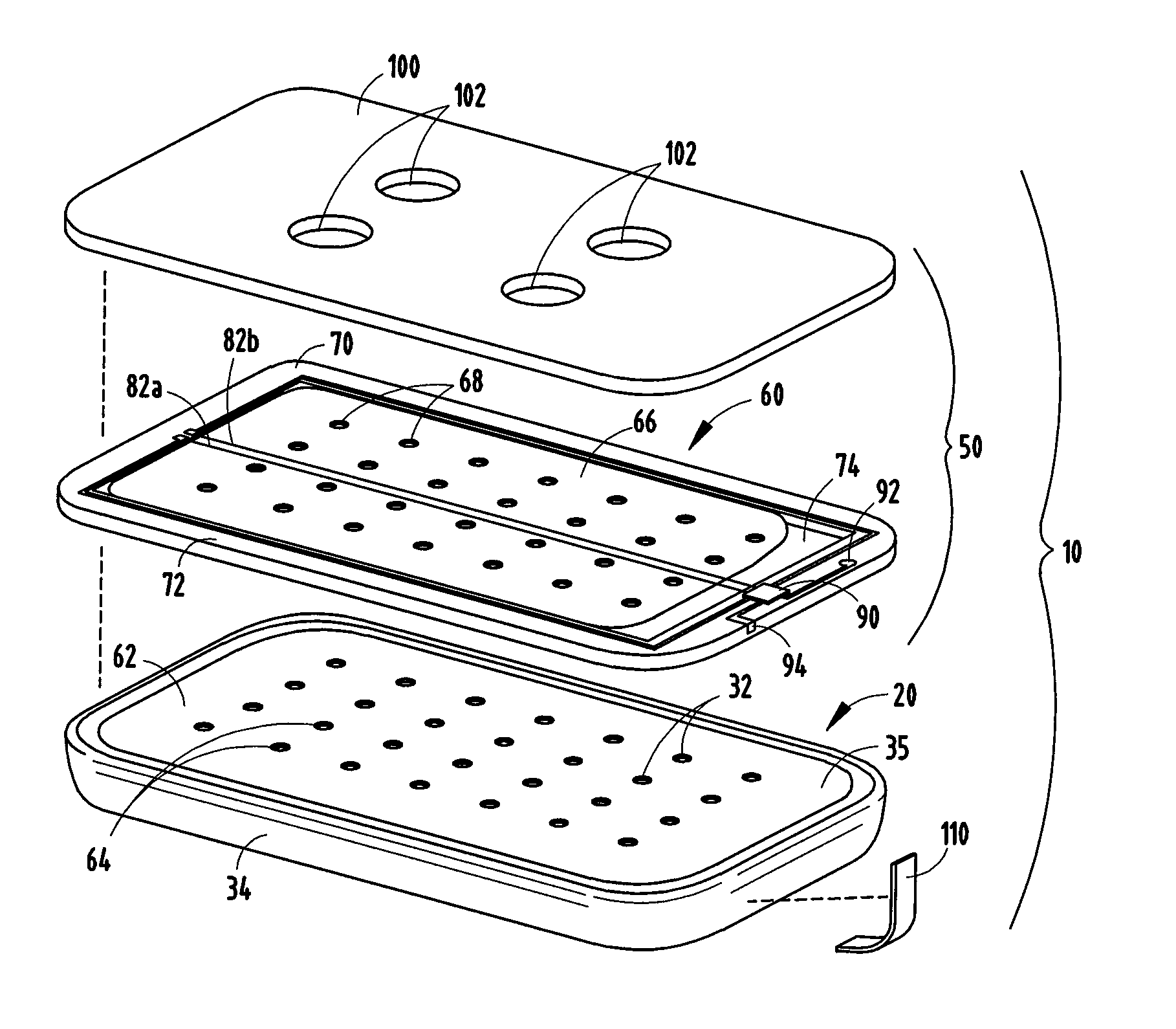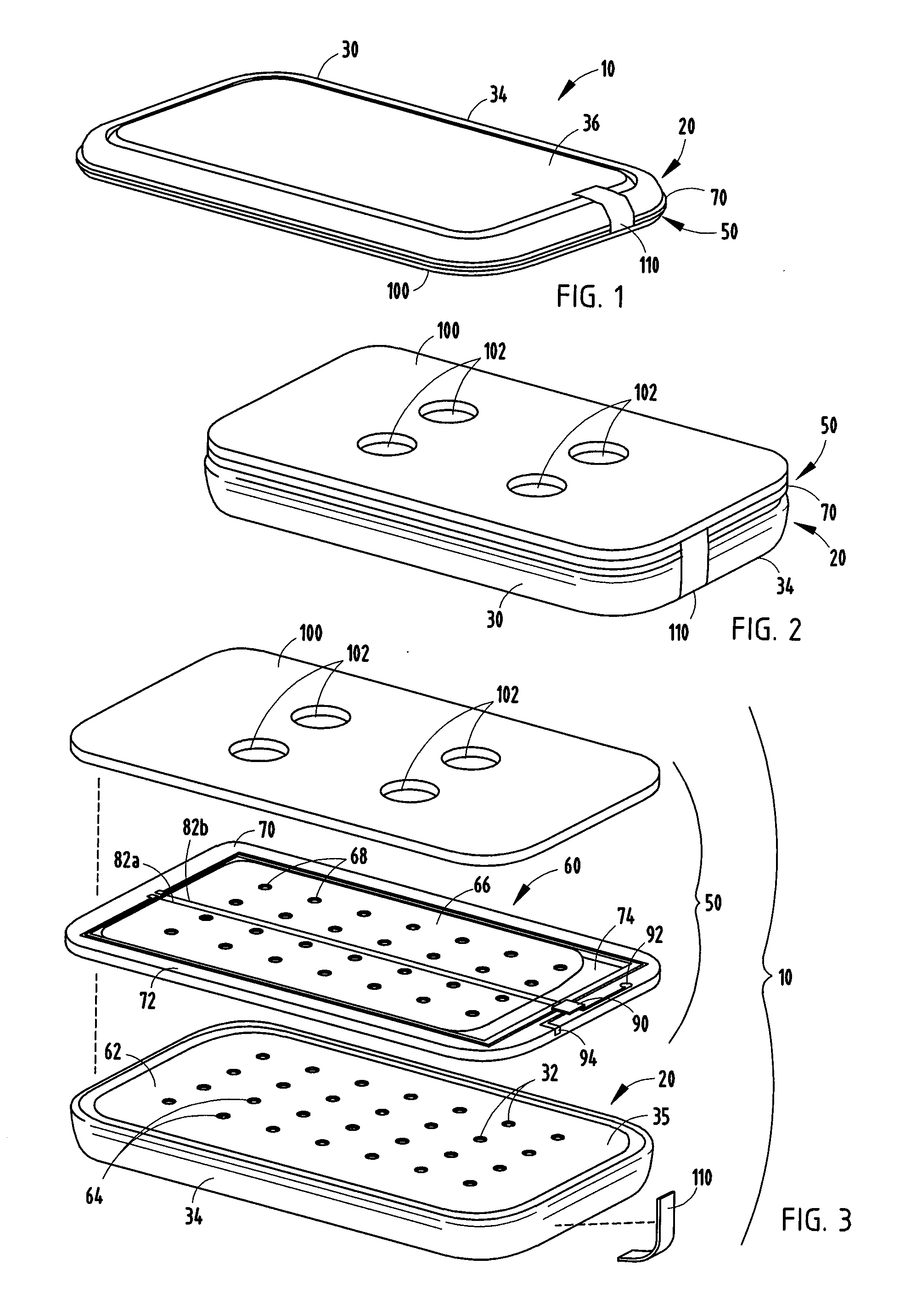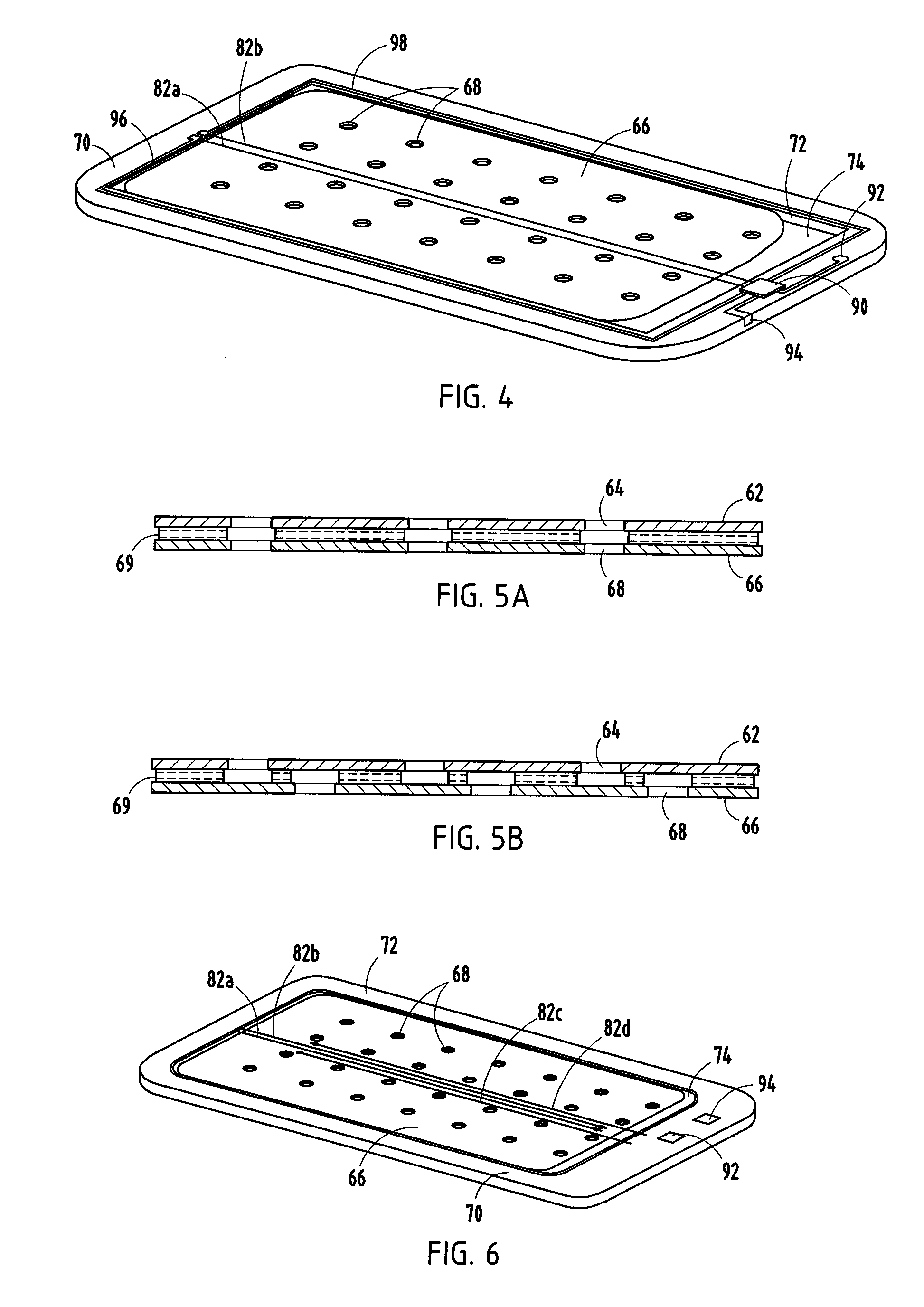Battery having fluid regulator with rotating valve
a technology of fluid regulator and valve, which is applied in the direction of valve operating means/release devices, cell components, cell component details, etc., can solve the problems of limited maximum discharge rate, reduced material use in oxygen reduction electrodes, and reduced least partially
- Summary
- Abstract
- Description
- Claims
- Application Information
AI Technical Summary
Benefits of technology
Problems solved by technology
Method used
Image
Examples
Embodiment Construction
[0074]Embodiments of this invention include a battery that includes an electrochemical cell that utilizes a fluid (such as oxygen or another gas) from outside the cell as an active material for one of the electrodes. The cell has a fluid consuming electrode, such as an oxygen reduction electrode. The cell can be an air-depolarized cell, an air-assisted cell, or a fuel cell. The battery also has a fluid regulating system for adjusting the rate of passage of fluid to the fluid consuming electrode (e.g., the air electrodes in air-depolarized and air-assisted cells) to provide a sufficient amount of the fluid from outside the cell for discharge of the cell at high rate or high power, while minimizing entry of fluids into the fluid consuming electrode and water gain or loss into or from the cell during periods of low rate or no discharge.
[0075]Preferably the fluid regulating system will have a fast response to changes in cell potential, a long cycle lifetime, a low operating voltage that...
PUM
| Property | Measurement | Unit |
|---|---|---|
| diameter | aaaaa | aaaaa |
| temperature | aaaaa | aaaaa |
| temperature | aaaaa | aaaaa |
Abstract
Description
Claims
Application Information
 Login to View More
Login to View More - R&D
- Intellectual Property
- Life Sciences
- Materials
- Tech Scout
- Unparalleled Data Quality
- Higher Quality Content
- 60% Fewer Hallucinations
Browse by: Latest US Patents, China's latest patents, Technical Efficacy Thesaurus, Application Domain, Technology Topic, Popular Technical Reports.
© 2025 PatSnap. All rights reserved.Legal|Privacy policy|Modern Slavery Act Transparency Statement|Sitemap|About US| Contact US: help@patsnap.com



